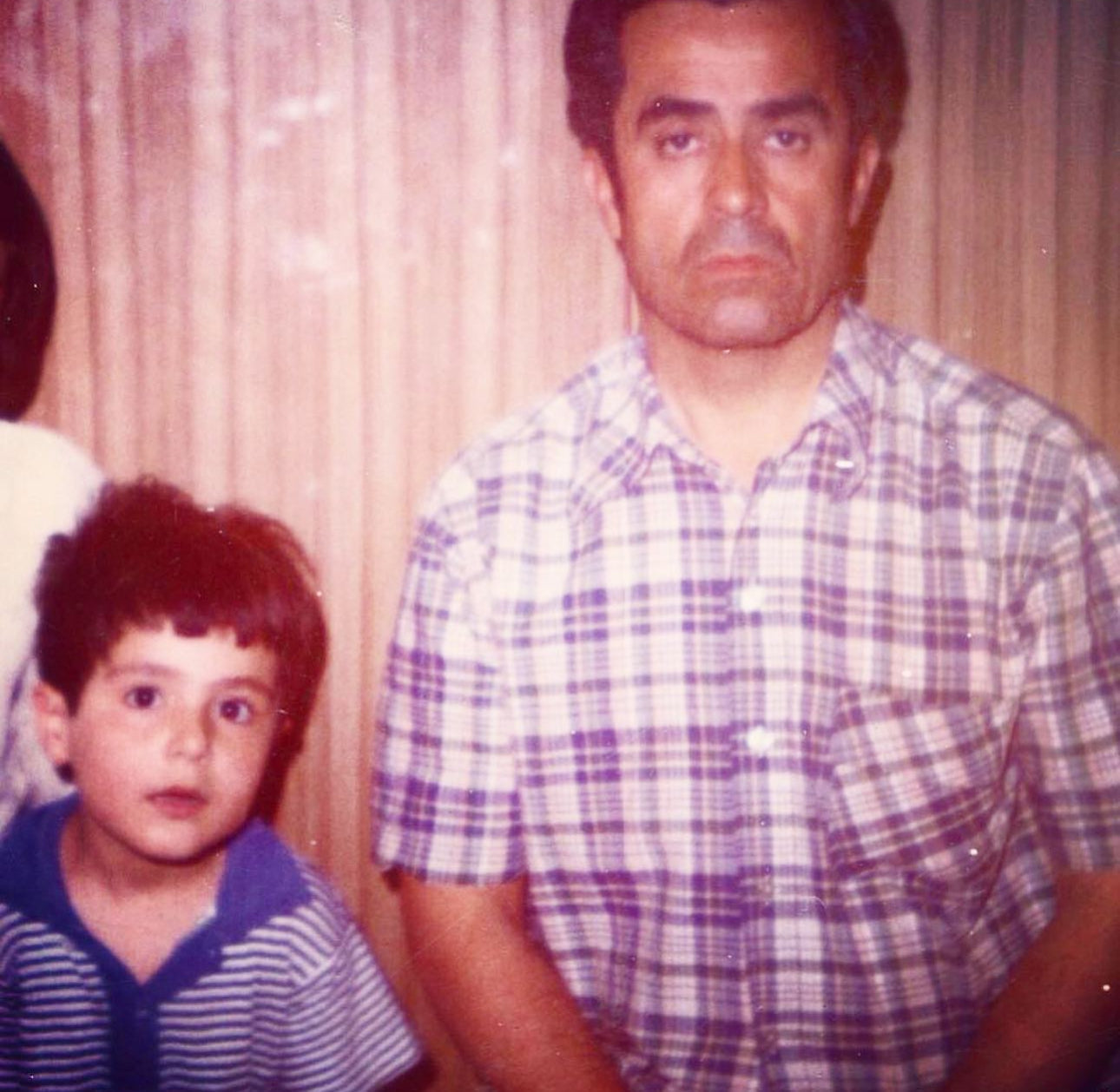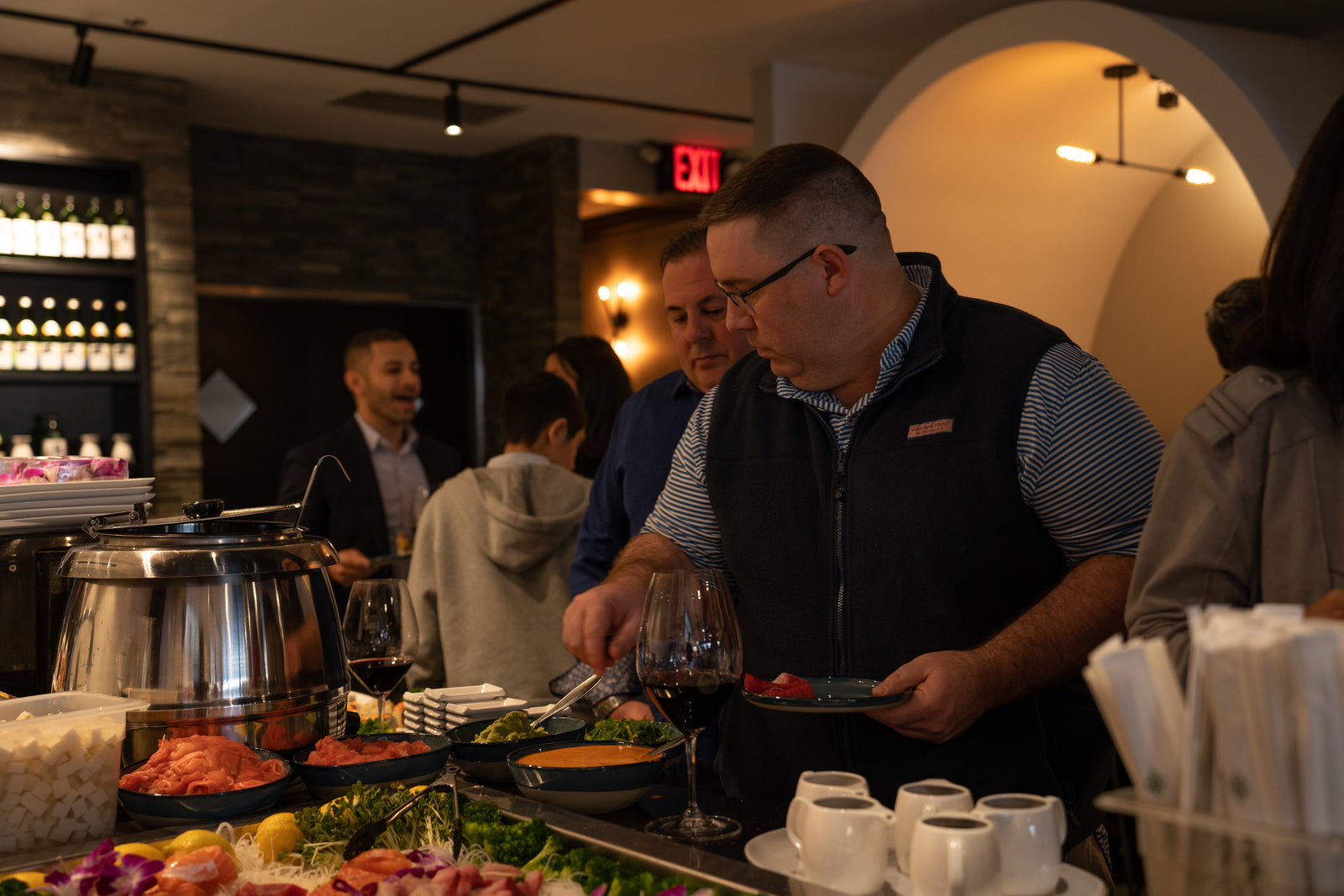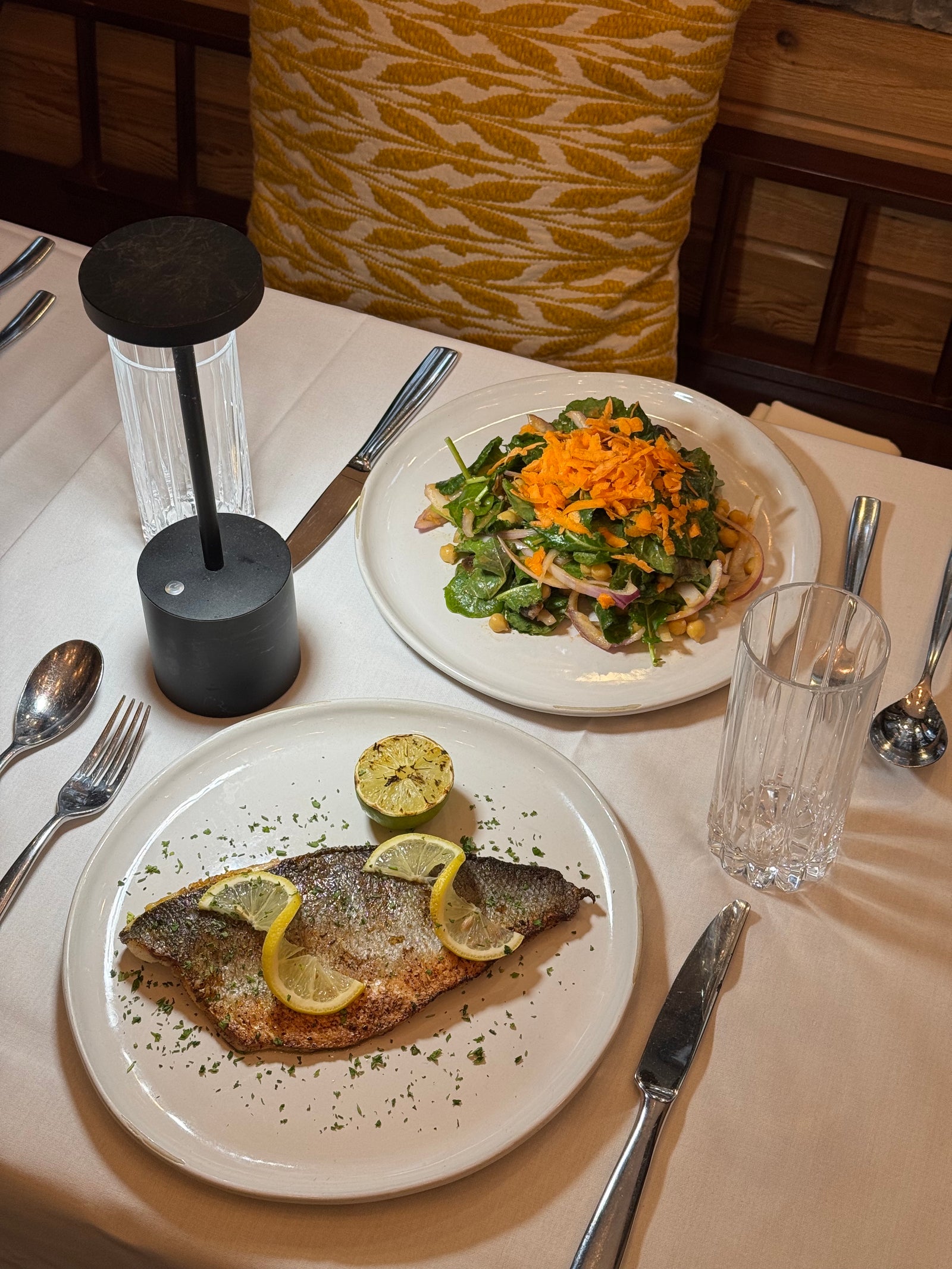
The phone rang.
"Someone from The New York Times is on line two," my staff member said, eyes wide with excitement.
I barely glanced up from the dish I was plating. "Tell them I'm busy."
She blinked, incredulous. "But... it's The New York Times."
That moment from 2016 encapsulates exactly who I am: so immersed in the rhythm of my restaurant, so determined to perfect every detail, that I nearly missed one of the most important calls of my career. But to truly understand why I almost dismissed The Times, you need to know where my story began.
The Kitchen That Started It All
Close your eyes and picture Tehran in the 1980s. The air hangs heavy with saffron and rose water. My mother orchestrates a symphony at the stove amidst bubbling pots and cheerful chaos. Aunts rhythmically chop mountains of fresh herbs. Uncles passionately debate politics. Cousins sneak tastes from simmering stews when they think no one's watching.
And then there's me—seven years old, weaving between legs and laughter, balancing a tray of delicate tea glasses, determined to ensure everyone feels seen and cared for.
"Reza-jan," my mother calls gently, "take the watermelon to your uncle. Make sure everyone gets a piece."
I was the smallest waiter in the most demanding restaurant imaginable—our family home. Every gathering became an event. Every meal was theater. Without realizing it, I was absorbing the most profound lesson of my life: hospitality isn't something you do; it's who you are.
From Tehran to New York: A Leap of Faith
The years blur—immigration, adaptation, countless sleepless nights questioning my sanity. In 2015, I opened Shiraz Kitchen with one deceptively simple mission: to recreate my mother's dinner table for strangers.
What nobody tells you about opening a restaurant is that you don't just wear one hat—you wear them all, sometimes simultaneously. I was the chef over a scorching grill, the host greeting guests with genuine warmth, the busboy clearing tables, and the anxious owner reviewing finances at 2 AM.
Guests often seemed startled when the same person who welcomed them at the door appeared tableside to explain wine pairings, then rushed back to the kitchen.
"Wait—you're the owner?" they'd ask, bewildered.
I'd simply smile. How could I convey that in my childhood home, true hospitality meant doing whatever needed to be done, no task beneath you?
The Call That Changed Everything
So yes, I nearly brushed off The New York Times.
When I finally answered—hands still dusted with flour—they shared news of a glowing review set to run the next day. After hanging up, I stood alone in my kitchen, surrounded by beautiful chaos, and felt something unexpected: pure terror.
Success is peculiar. You chase it relentlessly, dream of it, sacrifice everything for it. Yet when it arrives, your first instinct isn't celebration—it's the crushing weight of responsibility. Now we had a reputation to uphold, expectations to meet, and excellence to maintain daily.
The Hidden Cost of Caring
Here's what they don't tell you about restaurant success: those awards—our MICHELIN Bib Gourmand recognitions, our Wine Spectator Award of Excellence—they gleam impressively, but behind each one lie countless nights I drove home emotionally depleted, pulling over just to breathe.
There's a particular exhaustion that comes from caring too deeply, replaying every service in your mind—wondering if table seven received their wine promptly, if the anniversary couple felt celebrated, if the tahdig had achieved the golden crust my mother would approve of.
One evening, a friend found me sitting in my car outside the restaurant, staring blankly.
"Reza," he said gently, "you've built something incredible here."
"But did I make everyone happy tonight?" I asked.
He laughed softly. "You can't possibly make everyone happy."
"Watch me try," I replied, and meant it.
Love Letters from Strangers
When you pour your heart onto every plate, sometimes the universe pours back unexpectedly.
There was the couple whose anniversary reservation vanished from our system. They arrived flustered but left laughing over pomegranate-glazed lamb, frustration forgotten. Their review still moves me: "Reza went above and beyond... we'll be back again and again."
Or the solo traveler who wrote simply: "Amazing dinner, incredible service, warm atmosphere... and the saffron ice cream—not to be missed."
These aren't just reviews—they're love letters. Strangers telling me they felt the warmth I experienced at my mother's table.
The Ever-Expanding Table
Today, Shiraz Kitchen has evolved beyond my wildest dreams—a full wine bar in Westchester, a MICHELIN-recognized destination. It's where nervous first dates blossom into proposals, business dinners turn into lifelong friendships, homesick Iranians find comfort, and adventurous eaters discover new favorites.
But at its core, it remains anchored in a simple truth I learned as that small boy in Tehran: hospitality isn't about achieving perfection; it's about genuine intention. It's about truly seeing each person who walks through your door and asking yourself, "How can I make them feel like family?"
The Best Is Yet to Come
As I reflect on this journey in 2025, one thing becomes clear: we're just getting started.
Every night, I still walk the dining room, straightening chairs, tasting rice, holding doors open. Because that little boy balancing the tea tray? He never left—he just inherited a much bigger table.
Sometimes, after the dinner rush subsides, my mother calls. "How was service?" she asks softly in Farsi, though she already knows.
"Everyone was fed," I tell her. "Everyone was happy."
"Then you did good," she replies, smiling through the phone.
That's all any of us can hope for—to set a table so welcoming that strangers become family, to pass the watermelon and ensure everyone gets their piece.
The table is set. The saffron is blooming. Come, sit with us.
There's always room for one more.
— Reza Parhizkaran is the chef and owner of Shiraz Kitchen in White Plains, New York, acclaimed by The New York Times, awarded MICHELIN Bib Gourmand, and recipient of the Wine Spectator Award of Excellence.





Leave a comment (all fields required)